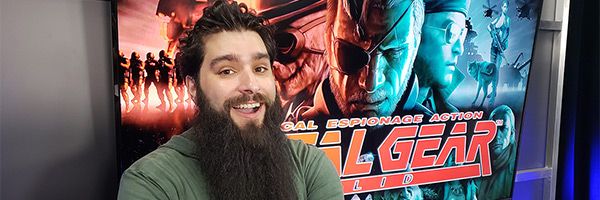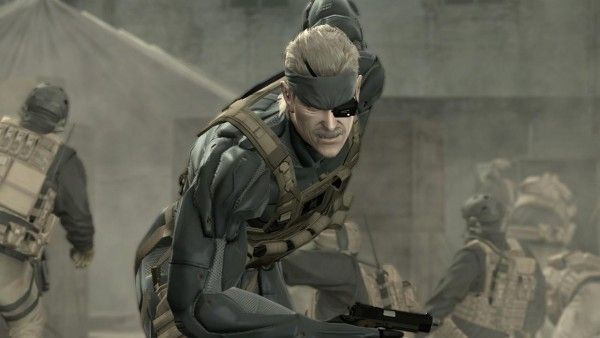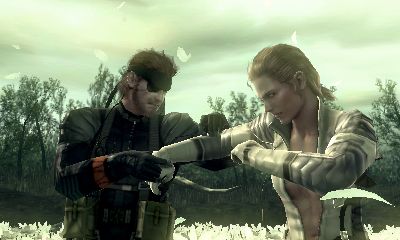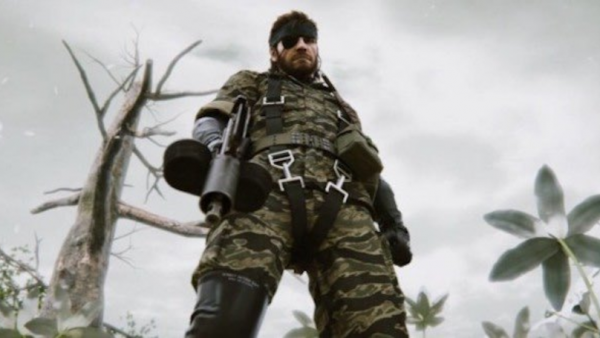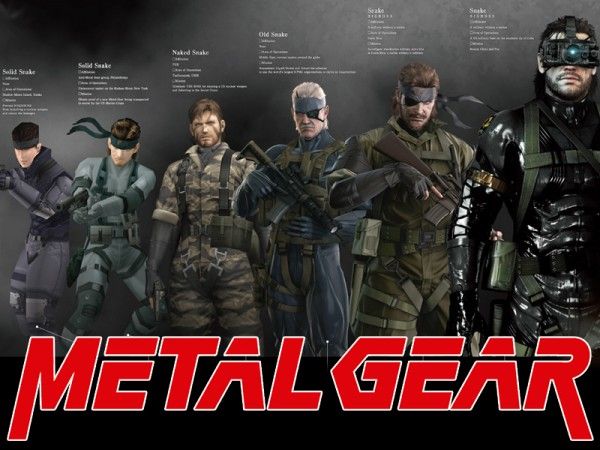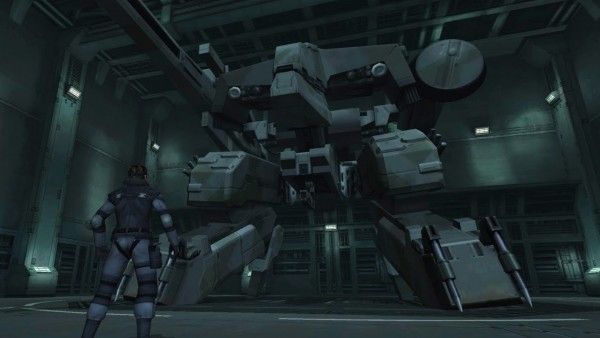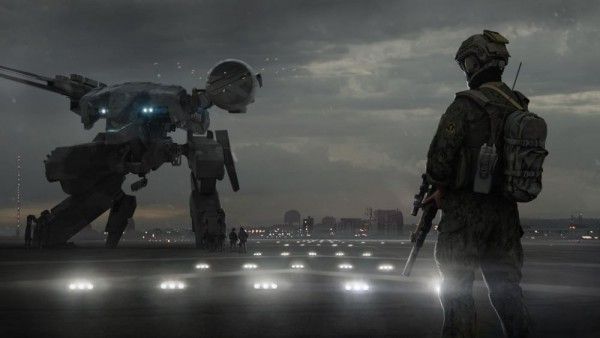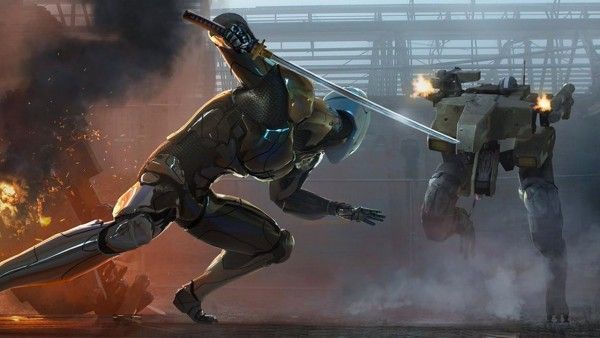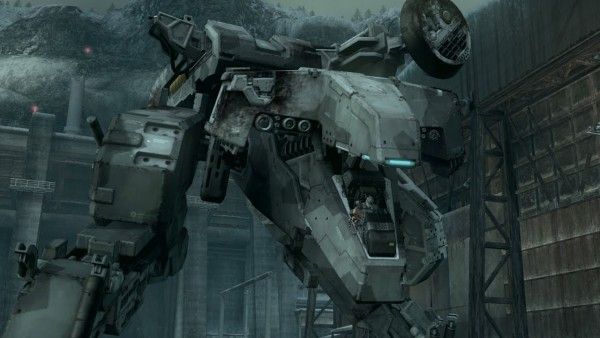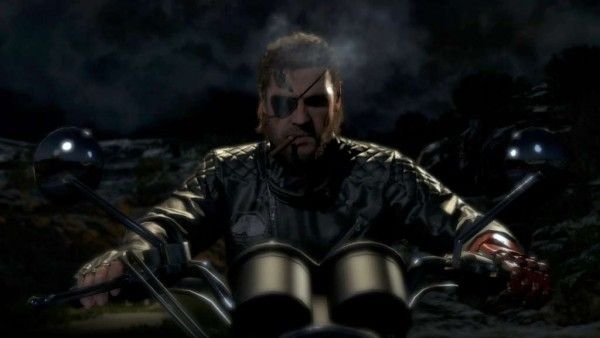-
Jordan Vogt-Roberts has been trying to get a Metal Gear Solid movie made for the past five years, during which the Kong: Skull Island director has gotten the direct blessing of the franchise's creator Hideo Kojima and commissioned a slew of concept art from numerous artists, some of which he's been teasing out on social media. Still, there's been no official word from Sony—who own the rights to Metal Gear Solid—that a film based on the long-running, critically acclaimed video game franchise has been greenlit.
But when Collider's own Steven Weintraub sat down for a one-on-one chat with the filmmaker—as well as a glimpse at some of that gorgeous concept art—we got the clearest idea yet of where in the development process a Metal Gear movie currently stands. (Check out the video above for the full, in-depth discussion.) A script, written by Derek Connolly (Jurassic World: Fallen Kingdom), has been submitted to Sony. By the sound of it, the studio sent back notes and Vogt-Roberts and Connolly are in the middle of another round of revisions. And according to the director, that script is wild as hell.
"Even if I wasn’t involved in this movie I would read that script and say, 'Holy shit,'" Vogt-Roberts said. "It represents a different approach to a video game movie. It represents a different approach to how a three-act structure is put on screen.”
The biggest challenge, the director said, in adapting Metal Gear Solid is the sheer scope of the franchise. The story of Solid Snake, Big Boss, and the massive mecha bi-ped Metal Gears has been told across eleven games for more than three decades, and that includes spin-offs, prequels, time-jumps, history splits, and a cast of characters that makes Avengers: Infinity War look like My Dinner with Andre. Vogt-Roberts said he has not only embraced the sprawl, he's figured out a way to make it work on-screen:
"The thing about Metal Gear is it’s intentionally sprawling and it’s intentionally dense. It’d be super easy to do one sliver of it or do too much at once. And we’ve spent the last little bit really trying to figure out, to me, the most Kojima-san inspired way to tackle as much of that story through a device that I think allows you to tap in…how to put this without spoiling it?…regardless, we have a device that I think allows us to respect the breadth of the franchise, respect the sprawling nature of the franchise, respect the somewhat convoluted nature of the franchise at times. But to still show you the mirrors. What I mean by that is all those timelines fundamentally exist because they show the repetition of war throughout time. They show the repetition and the cycle of pain throughout time. So it ’s almost impossible to tell just one story now. You need the full throughline of what this game is about."
Metal Gear doesn't only jump through time, it jumps through tones. These are the type of games that will ask you to ruminate on the futility of war and then immediately have you sneak past a guard underneath a cardboard box. There's deep philosophy, there's fourth wall breaking, there's absurdist humor, and elements of survival horror. According to Vogt-Roberts, the only way to get a Metal Gear movie right is to lean into every facet of the weirdness:
“Our understanding of genre evolves. Now we have talking raccoons and talking trees in genre movies, and ten years ago, even three years ago that would’ve seemed like a crazy idea...I think there’s a way to lean into all of the oddities and the quirks and the idiosyncrasies of Metal Gear—and people forget Metal Gear is goofy. It’s filled with like military surrealism, it’s filled with these walking, talking philosophical ideologies of characters, it’s filled with almost horror tones at times—and that's all in this container of this sort of super serious military game. I think finding the right access point and leaning into all of those things that appeal to the hardcore, I think that’s a way to translate that stuff and those end up being the things that a general audience falls in love with. Instead of being afraid of them, instead of running away from all those oddities and those quirks, those are Metal Gear.”
Vogt-Roberts continued by noting that, in addition to franchise protagonist Solid Snake and his nemesis Big Boss, the script has plenty of room for iconic characters like Gray Fox, Sniper Wolf, and Revolver Ocelot:
"Snake and Boss—these two figureheads of the franchise, essentially—they define themselves based on the relationships of the people around them. So much of the game ends up being the tragedy that these characters experienced…you have a boss fight, and instead of feeling like you accomplished something, you feel a sense of loss, which is such a unique Metal Gear feeling. So it’s important that those characters are surrounded by a roster of people. So we’re finding the exact right amount of people where we can introduce enough of them where it feels robust, where we can define Snake or Boss through these characters, but not enough to get lost.”
Going into specifics, Vogt-Robert underlined two key aspects of the franchise he especially wanted to translate to a big-screen: the cybernetic character Cyborg Ninja—“There is not a scene in cinema to this day that captures the badassery of Cyborg Ninja," he said—and the massive, nuclear-missile-firing Metal Gears that give the games their name:
“People have forgotten about mutually assured destruction. People have forgotten about nuclear proliferation. People have forgotten about what that type of nuclear fear is. We’ve done a lot of work to make the Metal Gears themselves relevant in a very cool way.”
While Vogt-Roberts does believe his Metal Gear should be rated R, he stressed that he'd be pulling off the often brutal nature of the franchise at a reasonable cost so a studio could take more risks with the style and story. As he put it: "It’s about doing it for a price so you can make the riskier, balls-to-the-wall, Kojima-san version of it.”
The result, he said, would break new boundaries for himself as a filmmaker and Metal Gear mega-fan, as well as genre fanatics in general.
"There are Star Wars movies to talk about, there’s all sorts of stuff to talk about. To me, this is that," Vogt-Roberts said. "This is a new frontier not only for me as a filmmaker but I just feel like for audiences. To me, it’s a way to make the first great video game movie where it doesn’t matter that it’s based on a video game."
He continued, because there aren't many people on this planet as passionate about a Metal Gear Solid movie as Jordan Vogt-Roberts:
"We have to work that much harder to make film that touches people in the same way that you and I as kids were like, blown away by it. To me, Metal Gear Solid is that. Hideo Kojima’s world is that. So hell or high water I will be fighting for this thing the rest of my life to not only shepherd the best version of it on-screen, but just because I genuinely believe it’s a world that people are ready to see. And that by leaning into all the crazy things that people may say, 'Whoa, you can’t adapt a Metal Gear movie because of this, this, and this.' I actually believe that, that, that, and that is how you make the rest of the world fall in love with it.”
Check out what Vogt-Roberts had to say in the video above. In addition to talking about the cool concept art he's released online, he also discussed all aspects of getting a Metal Gear movie made. Here's what was discussed:
- How long, exactly, has Vogt-Roberts been working to get a Metal Gear Solid movie made?
- How many—and which—characters from the games does he plan to include?
- Does he believe there's been a worthwhile video-game movie yet?
- Where do you begin when adapting the complicated history of Metal Gear Solid?
- Which particular entries in the franchise was he interested in examining for a film adaptation?
- How do you make a film that appeals to both the hardcore gamer fans of the franchise and casual audiences?
- How much did knowing the movie would have to be made at a cost affect the screenwriting process?

